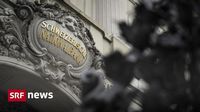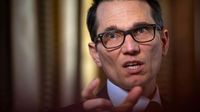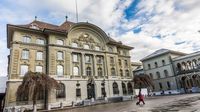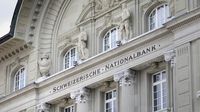On March 20, 2025, the Swiss National Bank (SNB) announced a significant reduction in its key interest rate, lowering it from 0.5 percent to 0.25 percent, marking the fifth consecutive cut in a move closely watched by financial markets and economic analysts.
The decision, effective immediately from March 21, 2025, comes in response to persistently low inflation rates and heightened economic uncertainties that have emerged in the global economic landscape. The SNB noted that the weakening inflationary pressures warranted this latest monetary policy adjustment.
According to the SNB, “The monetary conditions are adequate given the weak inflation pressure and the increased downward risks for inflation,” stated President Martin Schlegel during the announcement to the media. The bank’s action aims to bolster economic activity while maintaining price stability, with inflation remaining below the target range.
Since the SNB’s last interest rate decision in November 2024, inflation in Switzerland has declined sharply from 0.7 percent to just 0.3 percent in February 2025, indicating a long-term trend that the Bank aims to stabilize. Economists had anticipated this reduction; 28 out of 32 surveyed by Reuters expected a shift in the rate, as indicated in earlier analyses predicting a downturn in economic conditions globally.
The backdrop of this decision includes notable challenges, as the SNB faces mounting uncertainties not just locally, but from overarching geopolitical tensions and trade barriers affecting Europe and the global economy. “In the current environment of high uncertainty, the SNB continues to regard the increased downward risks for low inflation,” remarked Alexander Koch, an economist at Raiffeisen, reflecting on the difficulties presented by external economic pressures.
The SNB’s decision builds upon a history of monetary policy adjustments that saw a significant rate hike from -0.75 percent to 1.75 percent between June 2022 and December 2024. This previous tightening was a response to rising inflation that has now reversed course, challenging policymakers as economic indicators shift.
In stark contrast to the positive outcomes expected for homeowners benefiting from lower borrowing costs, savers may face declining interest rates on savings accounts as banks adjust to the new lower rate. This duality represents a key area of concern among financial analysts, as lower rates encourage investment but constrict returns for investors and savers alike. Philipp Merkt, head of investments at Postfinance, emphasized that households can expect a further decline in saving rates.
Furthermore, the implications of this interest rate cut extend toward the housing market, with lower Saron mortgage rates making home purchasing more appealing amid falling inflation rates. However, it is crucial to note that long-term mortgage rates may not see significant changes as these have already been priced in. Market observers are keenly tracking these trends to understand their broader consequences for various economic sectors.
The economic forecast provided by the SNB anticipates GDP growth of between 1 and 1.5 percent for 2025, a sobering estimate amid challenging international trade conditions. As stated earlier, the SNB insists it will observe the current economic landscape closely and modify its monetary strategies should the situation evolve unfavorably.
In light of international developments, the SNB's cautious, proactive posture reflects the uncertainty that defines current global economic conditions, including U.S. tariffs that may constrict economic growth post-Brexit and instigate inflationary pressures in Europe.
Analysts suggest that the SNB's monetary policy will remain flexible, adapting to incoming data regarding inflation and economic performance. This adaptability is particularly crucial as the federal economic climate in Europe fluctuates, impacting investment and market confidence.
Despite the anticipated benefits for many borrowers in Switzerland, the SNB’s latest rate cut underscores the intricate balancing act monetary authorities must perform in a complex economic world. The interplay between inflation, interest rates, and the overall economic environment continues to present formidable challenges.
While hopes linger for a solid recovery in consumer demand amid the gradual easing of financial conditions, all eyes remain on how the international economy will evolve, particularly in light of proposed fiscal stimulus packages within the European Union.
As we move forward through 2025, stakeholders within Switzerland and beyond will be looking keenly toward the SNB’s forthcoming assessments and potential future adjustments in its interest rate strategy. With the economy’s resilience facing mounting pressures, the decision to lower interest rates may be both a prudent and necessary measure in navigating the uncertain terrain ahead.









